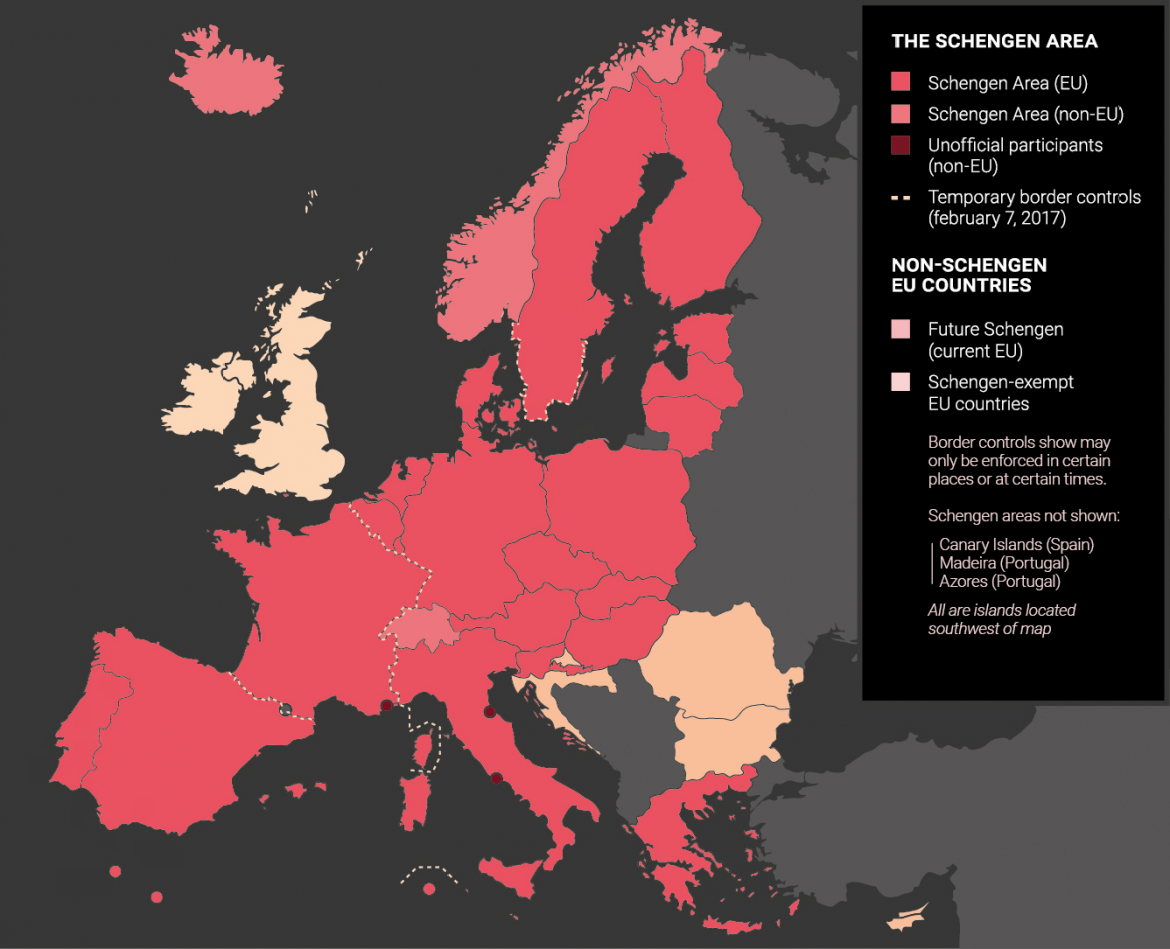Despite the emergence of recent voices against further unification of European Union, the current impasse of European politics call for a firm step forward by all countries that are already supporting a common currency and free circulation within the EU. Failing this necessary step forward, every single success achieved by the EU will be at risk since the current instability fosters grievances and hostility towards the idea of a unified Europe. In addition, the long-term rewards of this final integrative step are enormous and could constitute a fundamental factor in modifying dramatically the European citizens’ behaviour towards the EU. This can also be a turning point in the perception of European citizens towards the EU. Far from being the problem, this could in fact be the solution to the problem.
The latest European election results in 2014 revealed once again the increasing imbalance between the current format of the integrative procedure and the hopes and expectations from most citizens.
An explanation, I believe circumstantial, is that the increase of Euroscepticism is the result of the economic downturn that the continent has endured. It is true that the gravity and duration of the economic crisis is, partly, due to the mistakes made by member states after the introduction of the common currency. However, the harsh reaction from a large percentatge of European population stems from its dissatisfaction at the deficient management of the economic crisis rather than from the causes leading to this situation. Besides the perception associated to the economic crisis, there are other structural reasons behind the citizens’ unrest. The EU needs to fulfill the expectations from its population and, to that end, close examination is required to tackle every aspect.
The first reason for this discontent is the extremely slow economic growth in the European continent during the last 15 or 20 years, which is insufficient to mantain the same quality of welfare state offered by the state members in previous years. The causes for this low growth rate are controversial, but there are two components that usually receive very little attention and yet have a fundamental role. One of the components is the control that national elites exert upon the power structures of member states. These elites are reluctant to transfer sovereignty to Brussels in key areas such as tax policy and regulatory policy. That implies that the economic and monetary union as well as internal market policies in regulated industries, such as energy and telecommunications, are inefficient. The other component is corporatism that is still predominant in many state members: private sectors tend to provide excessive support to national governments in an attempt to preserve protected markets and sectors in which competitiveness and free entry are insufficient.
A second structural explanation behind this lack of support from the citizenship towards the European construction process is related to the complex institutional structure of the Union. However, the problem is not only limited to the difficulty for European citizens to understand the different roles of each community organ. The underlying issue is that there is no clear connection between the use of power – i.e. who decides what, and for what purposes – and the perception of the democratic legitimacy by the European citizens. Clearly, the European institutions are legitimate on account of the democratic representativeness of the national leaders that constitute the European Council and also the direct elections of the public representatives in the European Parliament. However, the complexity of the decision-making processes and the role of the European Commission force national leaders to take unpopular measures on the grounds that they are inevitable to adopt. It should also be reminded that, although the European Commission has the right of legislative initiative, it is also true that this is an organism appointed by the national leaders.
However, the real reason behind the current political crisis is that the EU, following a tradition that dates back to the origin of the European Economic Community, has evolved through economic integration and neglected political integration. It was wrongly assumed that changes from the latter would automatically follow from success of the former. Since political progress has fallen behind economic integration, the institutional system has suffered the consequences, sometimes acutely, such as at the start of the European Monetary System in the 90’s. Nowadays, there are two different fields in European policy that bring to the fore the mismatch between the economic agreements and the delay in implementing truly integrating policies, which keeps causing acute conflicts. Such unrest may become so serious that it could render the current institutional configuration unsustainable.
The first controversial political situation is free circulation agreed by the Union. Such policy allows free movement to any European citizen who lives and works in the EU. Some countries have even signed the Schengen Agreement, by virtue of which their citizens are allowed cross internal borders within the Union without border control.
Free movement of people is a political principle from the Union that has important positive implications in terms of economic efficiency for the continent as a whole. Under normal conditions, such tenet would already be hard to implement due to the great diversity of living standards within the 28 state members* that make up the EU. However, it is virtually impossible to guarantee whether, apart from the internal variety within the EU, there will be immigration policies that will follow common guidelines. In all likelihood, free movement of people within the State members will not be possible in the long term unless they agree on one common immigration policy. And it is obvious that coming to an agreement on this issue requires an important loss of sovereignity by the state members.
The second great policy that continues to cause institutional conflict is, naturally, the economic and monetary union: the euro. A common currency can be highly difficult to mantain in the long run unless strong integrative policies are issued. In short, common political institutions are necessary to address the issue of recurrent mismatches of competitiveness that frequently occur under a common currency. Thanks to political union, either the lesser developed state members’ finantial gaps can continue to be funded by the Union or legal and institutional reforms can be enforced to prevent permanent economic mismatches. Alternatively, legal reforms can also promote the movement of people as a strategy of adjustment. Either way, further political union is required; in fact, political union is even more important than having a common currency so that a monetary union can work in harmony despite different economic cycles between the state members. Given the latter, the required steps are related to taxation and banking unions. In these respects, the eurozone has recently made steps forward as a result of the crisis in the last few years.
It is worth of mention that the free movement policy as well as the monetary policy are action areas that nowadays are no longer shared by all state members.The eurozone includes 18 out of the 28 state members of the Union, while 22 state members out of the 26 state members from the EU are part of the Schengen Agreement.
Delving into an integration policy in order to achieve more coherent and effective immigration and monetary policies, thus, does not require from all state members to make a political agreement but rather a step forward from the subgroup of countries that have decided to be part of these collaboration areas, consisting in higher resignation to spaces of self-sovereignity. Is it possible to develop a Union configuration in which a few countries decide to remain united in an attempt to ensure free movement of people and monetary integration policies’ achievements nowadays? Is a European Union viable at a two speed rate?
In terms of procedures, the EU already possesses the legal mechanisms to foster collaboration between state groups. By so doing, the lesser developed countries do not slow down the rhythm of those states that decide to integrate further. These are the so-called “boosted cooperations”. The issue is not, thus, procedural but essentially political. Those countries that are not integrated in the boosted cooperations can fear the advance of state members in the Schengen-euro that constitute a subgroup that becomes dominant in the EU agenda and, therefore, becomes also detrimental to the other countries. The Great Britain* reluctance is a known case of the latter and is a clear exemple of the impact of all this process on London as a financial point of reference.
However, higher political integration within the state members from the Schengen-Euro space would improve the democratic legitimacy of the macroeconomic and immigration policies that, in turn, would make a strongly positive impact in terms of the citizenship perception on the European Union. In addition, the more coherent the model of the community policies in these areas and the central political support that it would receive, the more effective the implementation process within state members. Should that be the case, better results would be obtained in terms of economic growth and social impact on free movement of people. Again, these are the two key areas to improve the citizenship’s perception on the European political well-being.
As for those countries that do not belong to the “first speed” type, the strong ones need to respect the two fundamental principles of the European structure established since its inception: the first is that the first speed needs to be available to all countries that want to support it. Secondly, the countries participating in the first speed cannot discriminate against the rest of countries as this would dishonour some of the main achievements obtained by the EU throughout its nearly 60 years of existence.
This is the current situation, and it deserves a difficult answer to the question: are the countries from the strong nucleus in the Union prepared to take this step and start developing at a two-speed rate?
*Article written before the Brexit.





















